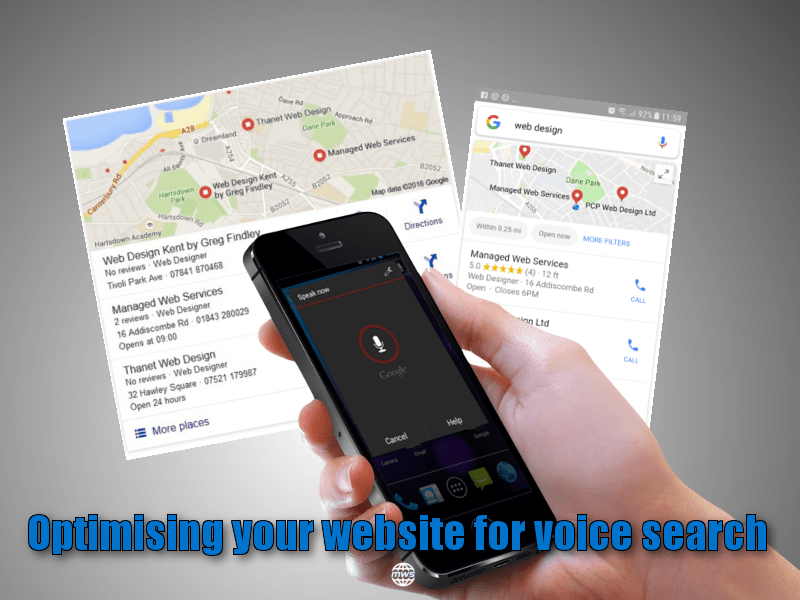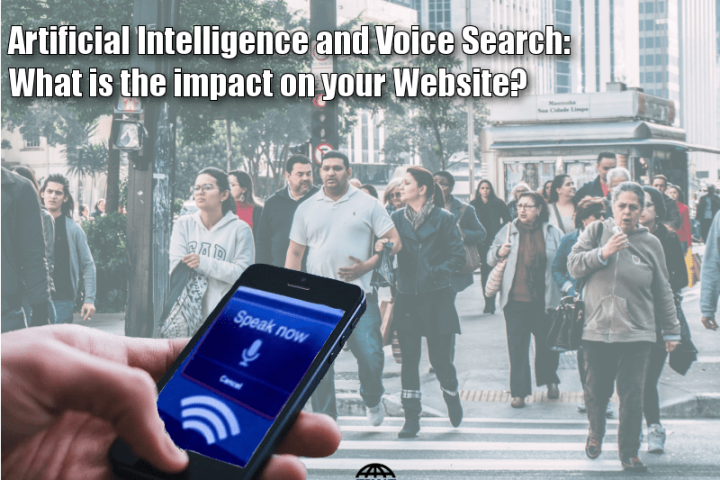Voice Search Increasing
According to Google voice search has doubled over the last year. 65% of consumers ages 25-49 years old talk to their voice-enabled devices daily. 58% of consumers have used voice search to find local business information in the last 12 months and 46% of voice search users look for a local business on a daily basis. Web user’s behaviour has changed significantly since the introduction of the smartphone. Mobile search now exceeds desktop search and is growing at a phenomenal rate.
Voice search and the Digital Assistant is the next natural development, and its use won’t be confined to the smartphone. ‘Google Home’ is intended to bring the digital assistant right into your living room.
When do people use voice search?
People currently use voice search:
- When they need a quick answer
- When they are doing something else, (eg driving, watching TV, shopping etc)
Most voice searches involve obtaining direct actionable data. For example, price checking while shopping, finding recipes or asking for directions. Many voice searches are related to potential commercial transactions such as ordering a pizza for example.
People currently use Voice search when it is physically difficult for them to type their search manually, for example when they are driving, exercising or cooking. Amoung younger people it is more socially acceptable to use Voice Search in front of others.
Semantic search and Voice Search
Keywords and Semantic Search
Keywords are essential if your web pages are to rank well. Keywords inform your users as well as search engines exactly what your page is about. There is a difference however in keyword usage between text searches and voice searches. Text searches focus around one to three words while voice search has around three to four words. Instead of using keywords verbatim, it will become increasingly important to think about the different ways someone might use those keywords, and how they might differ in various situations. In other words Voice searches are contextual, so it is important to consider the context of your keywords.
Semantic Search
The term for context based search is ‘Semantic Search’. Semantic search is simply the attempt to put a searcher’s query into context. Search engines such as Google use artificial intelligence to try and understand the intention behind a query so that they can deliver more accurate results. The artificial intelligence uses an algorithm called machine-based learning to do this.
Semantic search: an example
Imagine someone driving a car near Margate, they decide they want a pizza. They ask their smartphone where to get a pizza in Margate. Voice search won’t just pull up pages that say “pizzas in Margate.” Results will depend on:
- Their location, they want a pizza from a nearby restaurant and don’t want to drive across town.
- Positive review data. It won’t be enough to write a keyword phrase like “best pizzas in Margate” into your web copy. Your assertion will have to match data on Google Business, Yelp, and other review sites.
- The searcher may want a cheese pizza, a meat pizza, a spicy pizza or a Hawaiian pizza. Restaurants offering a more complete menu are more likely to top the search results.
- Past user behaviour. If users have clicked the result and then left positive reviews after their visits, the website will appear more often when others have similar queries.
- The search engine will probably choose a restaurant at which people check in on social media or a restaurant with an active social media presence. Your inbound link quality will also provide considerable context related to whether the search engine has confidence in your page.
Voice Search and your website
- Make sure your website is mobile friendly, most voice searches are performed on a mobile device.
- Use schema in your website mark up. Schema is code that you put on your website to help the search engines return more informative results for users. Rich snippets are written using schema mark up. Schema mark up is essential when using semantic searches.
- Use natural language, rather than just keywords to respond to questions. Keywords should include verbs, and include semantic variations. Use keyword and intent analysis to better understand the context of the queries.
- Local bias. Voice searches are often looking for actionable responses. Use natural language on your website, as if you were talking to a person. In the example of a semantic search given above. One might respond with directions to your pizza restaurant by saying “we are near the clock tower in Margate” for example.
- Remember the positive reviews and active social media presence. Sign up to local review sites and business directories and encourage your customers to leave reviews.




